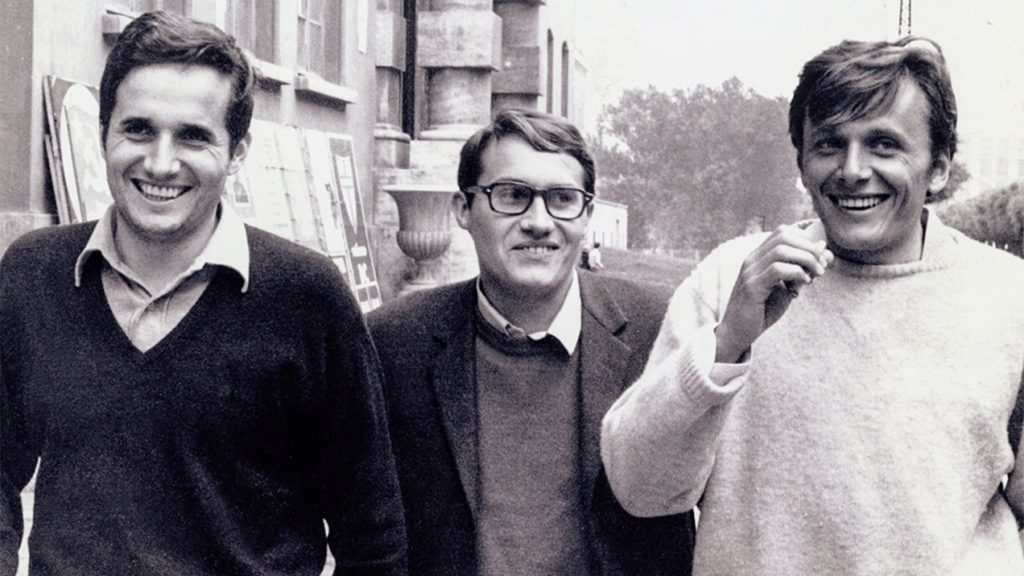Review: Marx Can Wait (2021)

Marco Bellocchio is certainly one of the greatest Italian filmmaker with a career that spans over 60 years and consists of over 50 titles in different filmmaking forms and formats. Bellocchio is best known for his fiction features, but he also signs shorts, documentaries and TV-series as the director. For his filmmaking merits, he was awarded the honorary Palme d’Or at the last year’s edition of Cannes during which his latest documentary, Marx Can Wait premiered in the Cannes Premieres section.
Contrary to the title and Bellocchio’s own reputation of a left-leaning-, even Marxist filmmaker, Marx Can Wait does not have much to do with the work, ideas and legacy of Karl Marx himself. The documentary, Bellocchio’s first in 19 years, actually revolves around his late twin brother Camillo who committed suicide at the age of 29. Bellocchio tries and eventually succeeds to give an in-depth look in the cause and consequences of the event for both him and the family, while blending the family history with the wider and more “official” social one.
The film itself consists of the footage obtained from the family gathering in 2016, when the still-living siblings and their children met in the town of Piacenza to remember the dead family members (especially Camillo), the imagery from the personal and official archives and the excerpts from Bellocchio’s films, and separate interviews with the family, but also with a psychiatrist, a priest and the sister of Camillo’s last girlfriend. Masterfully edited by Francesca Calvelli, they tell a wide and striking story about life and death in the post-war Italy, the conflicts within the society and the individuals themselves, the culpability and the feelings of guilt for all the missed signals, while they also shed a new light on Bellocchio’s filmmaking, explaining the topics, the ideas and the issues that bothered him in an autobiographical key.
Even the title comes from one line in Bellocchio’s film The Eyes, The Mouth (1982), while the statement itself was something Camillo said in his last conversation with his twin brother, then a budding filmmaker grabbed by the revolutionary fervour and optimism. However, this is not the only autobiographical element to be found in Bellocchio’s body of work, since the scenes from his films like his feature debut Fists in the Pocket (1965) and A Leap in the Dark (1980) are used to illustrate the testimonies of what happened within the Bellocchio family.
The classical three-act structure can be noted as the backbone of the documentary. The first act pretty much deals with the early life of Marco and Camillo, born at the beginning of WWII, and their childhood where the main driving forces were their mother’s Catholicism, father’s moderate conservativism, the social turmoil and confusion that ensued after the fall of Fascism in Italy, and the living conditions for the family members. The second act starts with the father’s death and it examines more closely how (and maybe why) Camillo drifted away from the rest of the brothers who pursued their own careers, while Camillo never managed to suit himself in the world. Eventually, the third one deals with the suicide itself and the reactions (starting with the disbelief and surprise, before transforming into a collective trauma and emptiness that was left after Camillo).
The structure serves well, and the basic execution of the film is pretty flawless in all of its components, underlining the functionality over any kind of flashiness. But all of it is pretty secondary to the emotion and sheer sincerity of the film, which is definitely Bellocchio’s most personal and therefore quite striking. Marx can really wait, while Camillo Bellocchio could not and his brother Marco, the terrific filmmaker, cannot any more.
Original
title: Marx
può aspettare
Year:
2021
Runtime:
96’
Country:
Italy
Language:
Italian
Directed
by:
Marco Bellocchio
Written
by:
Marco Bellocchio
Cinematography
by:
Michele Cherchi Palmieri, Paolo Ferrari
Editing
by:
Francesca Calvelli
Music
by:
Ezio Bosso
Sound
by:
Ricardo Milano, Francesco Tumminello
Production
design by:
Andrea Castorina
Costume
design by:
Daria Calvelli
Colourist:
Claudio Del Bravo
Produced
by:
Beppe Caschetto, Simone Gattoni
Production
companies:
Kavac Film, IBC Movie, RAI Cinema, Tenderstories
Supported
by:
Fondazione Cineteca di Bologna, Regione Lazio
Sales
by:
The Match Factory
















